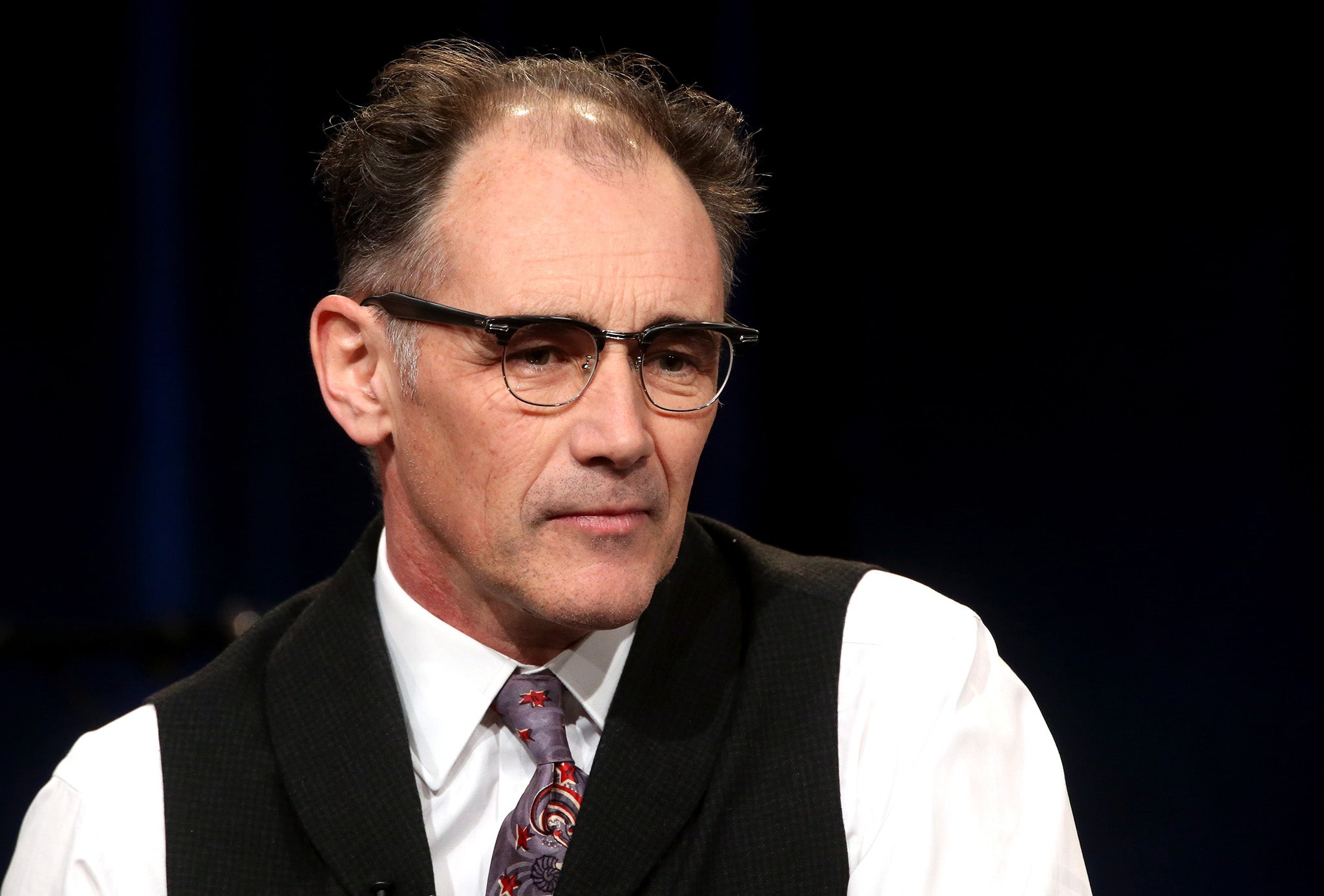Wolf Hall star Mark Rylance reveals he couldn't speak until he was six
The celebrated actor believes his late verbal development helped his career

Some of Shakespeare’s finest speeches have tripped - apparently effortlessly -off his tongue, but celebrated actor and Wolf Hall star Mark Rylance has revealed he couldn’t speak until he was six.
The former artistic director of Shakespeare’s Globe, who has won multiple Tony Awards and is in line to play the title role in Steven Spielberg’s film adaptation of Roald Dahl classic The BFG, said that he is “very appreciative of words and speaking” because he couldn’t for so long.
Up until his second year at primary school only Rylance’s brother could understand the “unintelligible” noises he made.
The actor, who is currently playing Thomas Cromwell in the BBC adaptation of Hilary Mantel's historical novel Wolf Hall, 55, told Desert Island Discs that his inability to speak for so long actually helped his acting career, because “from the very early part of my life I had listened and watched a lot”.
He said: “I think there is evidence for consciousness that is not limited by our physical nature.”
Wolf Hall cast in pictures
Show all 15“Whether some part of me had some intimation that I might one day get out in front of 2,500 people at the Palace Theatre and say ‘to be or not to be’ and keep my nerve with such famous words, [American psychologist James Hillman] would propose that my young soul knew that and was terrified and was doing everything to avoid that fate.”
Rylance, who achieved widespread acclaim for his Royal Court turn as Johnny 'Rooster' Byron in Jez Butterworth's Jerusalem, also revealed to the Radio 4 programme’s presenter Kirsty Young that his early success on the stage was thanks in part to ancient Chinese fortune-telling text the I Ching.
He said he turned down a "very small part" in Spielberg's 1987 film Empire Of The Sun but was then offered a bigger part and a role at the National Theatre at the same time.
He said: "I did all the lists of the benefits of both, they were completely equal, and I turned eventually to the I Ching and you just ask it where now and it gives an answer and the answer it gave if I went to the theatre was community and that swayed it for me and I thought yes I had never experienced community on film sets because the community is amongst the technicians, the actors come and go, but in the theatre you go through the deaths and the births and the happy and low moments of the group."
Speaking of making his name on stage before finding wider fame Rylance said he had “dodged a bullet."
He continued: “That’s quite a different fate to hit this kind of world where there are a lot of people all the time [saying] ‘Oh it’s great, it’s fantastic’. Automatically it [makes me suspicious] but I can see why they are being positive and what’s going on. I have less interest to believe it now.”
Rylance's desert island tracks included Justin Hinds and the Dominoes “Once A Man, Twice A Child”, Irish folk song “Arthur McBride” and music written by his wife, Claire van Kampen, for a film he starred in called Days And Nights.
He also took a stand-up bass as his luxury item and a book of verse by Persian poet Rumi.
Subscribe to Independent Premium to bookmark this article
Want to bookmark your favourite articles and stories to read or reference later? Start your Independent Premium subscription today.

Join our commenting forum
Join thought-provoking conversations, follow other Independent readers and see their replies